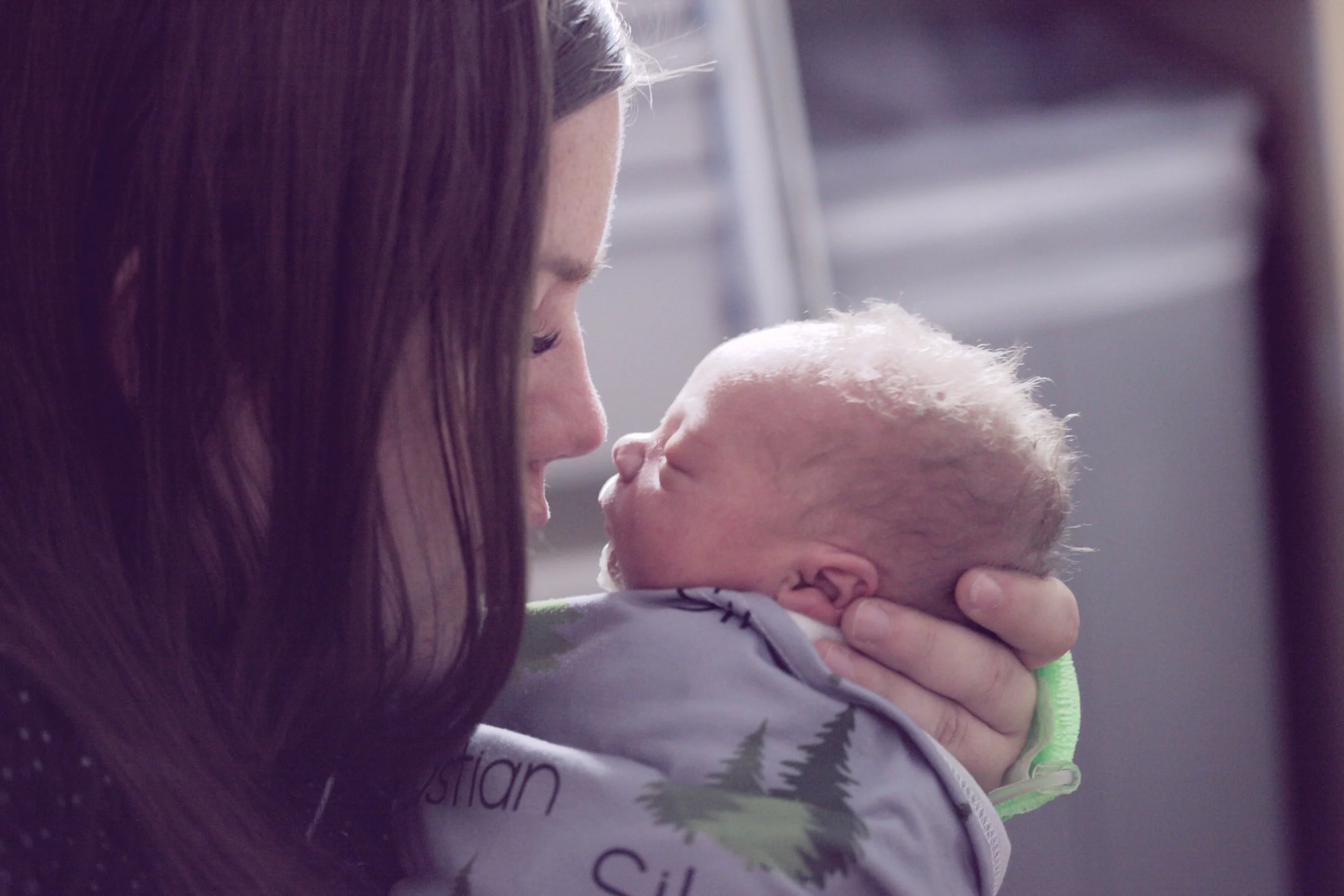Guide to Understanding Perinatal Mood Disorders
Postpartum or perinatal mood disorders are mental health conditions that occur any time during pregnancy or during the first 12 months after childbirth. These disorders include postpartum depression (PPD), postpartum anxiety (PPA), postpartum post-traumatic stress disorder (PPTSD), postpartum OCD (POCD), and postpartum psychosis (PPP).
Symptoms of Perinatal Mood Disorders
The postpartum period is often a beautiful but difficult time for parents as lack of sleep increases in addition to hormonal changes for the birthing person. Mood changes for both parents are to be expected but can happen on a more extreme scale for about 15-20% of birthing people, especially in minority, Black, indigenous, people of color (BIPOC) populations. Symptoms of perinatal mood disorders often include extreme sadness, irritability, difficulty bonding with baby, anxiety, panic, intrusive thoughts, regret of becoming a parent, worry about hurting the baby, difficulty eating and/or sleeping, and feeling out of control.
For individuals who are living with a postpartum health condition, it is common for them to experience intrusive thoughts. Intrusive thoughts typically show up in PPA, POCD, and PPP and often deal with the topics of health and safety of baby. This could look like constant worry about baby’s weight, images of baby dying, images of dropping baby down the stairs, or thoughts of wanting to harm your baby without the intent to do so. The intrusive thoughts are not wanted by the individual, but with perinatal mood disorders, it is common for the individual to not be able to control them without treatment.
Why don’t parents seek help for Perinatal mood disorders?
There are many reasons why new parents do not get help for perinatal mood disorders. Education about perinatal mood disorders and what to look for is typically given after a baby is born in the hospital when parents are already sleep deprived, overwhelmed with the newness of becoming parents and learning how to care for their baby. It can be difficult to distinguish normal emotional experiences of parenthood from more severe symptoms when individuals do not fully understand what to look for. There is also a significant amount of shame associated with mental health struggles that contributes to individuals not seeking care.
Birthing people are also only given one checkup at 6 weeks postpartum and are screened for some perinatal mood disorders at that time when symptoms can show up much later in the postpartum period. Additionally, there are no screenings for partners of birthing people who are also at risk for developing postpartum mood disorders. These issues in addition to stigma around mental health, especially for maternal mental health, access to care which can be difficult for so many reasons, and the financial piece of paying for therapy and medications needed to treat perinatal mood disorders all contribute to the barriers and reasons that new parents do not seek help when needed in the postpartum period.
How can society help with Perinatal mood disorders
There are many things that society can do to help better support individuals living with perinatal mood disorders. First and foremost, normalizing mental health issues in postpartum and having open conversations about the impact that new parenthood has on mental health is important. As a country, passing legislation to guarantee significant maternity and paternity paid leave is essential in supporting mental health and breaking down barriers to the burden that often falls onto the birthing person when their partner has to go back to work after a few short days or weeks after baby is born. Having more screenings for perinatal mood disorders and more checkups later in the postpartum period would increase the likelihood of catching any mental health issues that are occurring.
Additionally, increasing access to professional postpartum care such as working with postpartum doulas and mental health professionals that specialize in perinatal mood disorders can make a significant difference in the lives of those who are struggling.
Written by: Jess Mills, LCSW



